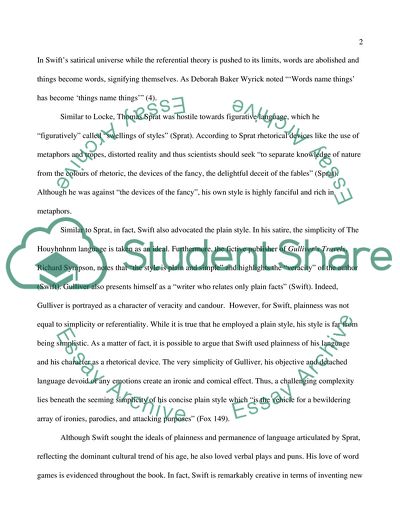Cite this document
(Thomas Sprats Influence in Jonathan Swifts Writing Style Term Paper, n.d.)
Thomas Sprats Influence in Jonathan Swifts Writing Style Term Paper. Retrieved from https://studentshare.org/literature/1743887-infleunce-on-swifts-writing-style-gullivers-travel
Thomas Sprats Influence in Jonathan Swifts Writing Style Term Paper. Retrieved from https://studentshare.org/literature/1743887-infleunce-on-swifts-writing-style-gullivers-travel
(Thomas Sprats Influence in Jonathan Swifts Writing Style Term Paper)
Thomas Sprats Influence in Jonathan Swifts Writing Style Term Paper. https://studentshare.org/literature/1743887-infleunce-on-swifts-writing-style-gullivers-travel.
Thomas Sprats Influence in Jonathan Swifts Writing Style Term Paper. https://studentshare.org/literature/1743887-infleunce-on-swifts-writing-style-gullivers-travel.
“Thomas Sprats Influence in Jonathan Swifts Writing Style Term Paper”, n.d. https://studentshare.org/literature/1743887-infleunce-on-swifts-writing-style-gullivers-travel.


